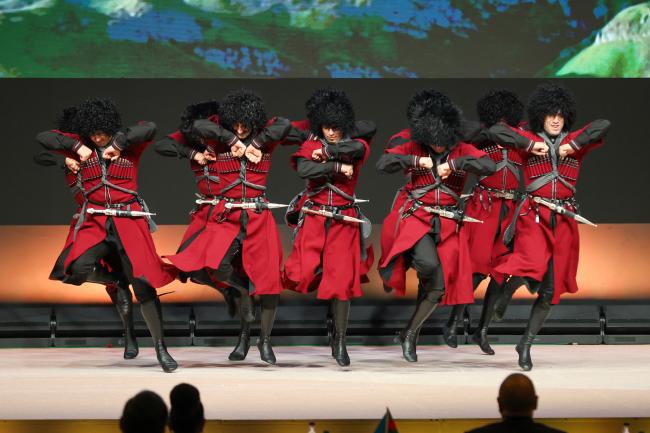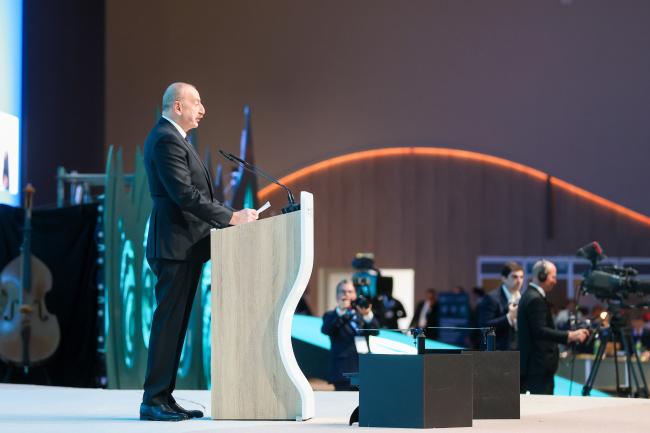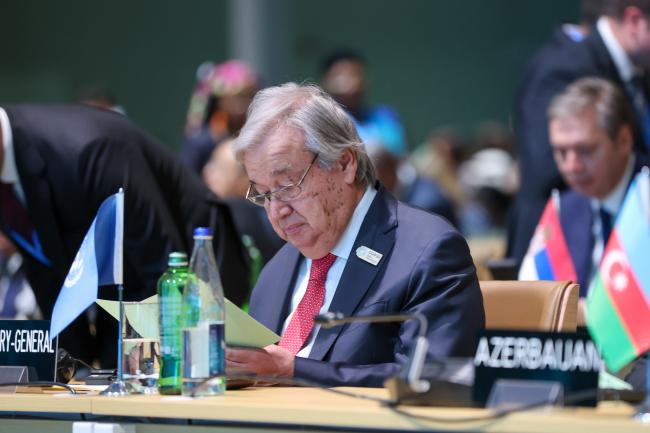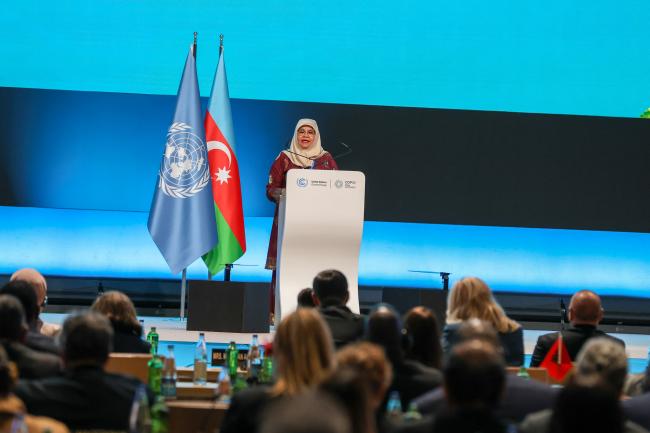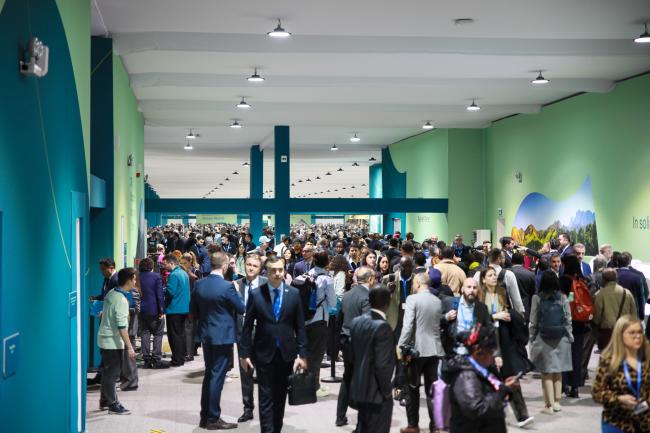The venue’s corridors were bustling with activity on the second day of the 29th session of the Conference of the Parties (COP 29) to the UN Framework Convention on Climate Change (UNFCCC). Some of it was due to the opening of the high-level segment, but mostly it was negotiators hustling across meeting rooms and fueling up at the coffee carts.
Want to dig deeper into today's talks? Read the full Earth Negotiations Bulletin daily report.
At the World Leaders Summit, Azerbaijan’s President Ilham Aliyev pointed to various renewable energy projects underway in the country and, acknowledging this is not a very popular topic for a climate conference, emphasized the importance of oil and gas for energy security. He denounced the “double standards” and “slanderous” media campaigns against the host country.
UN Secretary-General António Guterres emphasized that climate change is a “story of avoidable injustice” in which the rich cause the problem and the poorest pay the price. He underscored how compelling the economic imperative for action is, with solar and wind being the cheapest forms of energy almost everywhere. He urged progress on climate finance, including through a significant increase in concessional public finance and tapping into innovative sources such as levies on shipping, aviation, and fossil fuel extraction.
In other parts of the venue, negotiations launched on a wide range of issues, including the new collective quantified goal on climate finance (NCQG), which is the key expected deliverable of the conference. Many stressed how this goal is the foundation of more ambitious climate action in developing countries. Parties rejected what could have been the basis for a draft negotiating text, finding the text “messy, inoperable, underwhelming, perplexing, and difficult to engage with.” They did, however, mandate the Co-Chairs to draft another text that they hope can start negotiations in earnest.
Negotiations on other issues made slightly better progress. Parties requested the preparation of draft text on a range of issues, including Paris Agreement Article 6.2 (cooperative approaches), long-term finance, and matters relating to the least developed countries. Negotiations continued past the usual 6:00 pm mark, with many informal consultations convening until 9:00 pm and negotiators on issues such as the mitigation and just transition work programmes meeting twice in one day.
To receive free coverage of global environmental events delivered to your inbox, subscribe to the ENB Update newsletter.
All ENB photos are free to use with attribution. For the 2024 UN Climate Change Conference Baku, please use: Photo by IISD/ENB | Mike Muzurakis
World Leaders Climate Action Summit Opening Session
High-level Segment for Heads of State and Government
Contact Groups and Informal Consultations

Contact group on Just Transition Work Programme Co-Chairs Kishan Kumarsingh, Trinidad and Tobago, and Georg Børsting, Norway

Gender and climate change Co-Facilitators Ruleta Camacho Thomas, Antigua and Barbuda, and Marc-André Lafrance, Canada
COP 29 Presidency and UN Climate Change Joint Press Conference

From L-R: Martin Hession, Vice-Chair of the Article 6.4 Supervisory Body; Maria AlJishi, Chair of the Article 6.4 Supervisory Body; Yalchin Rafiyev, COP 29 Presidency; UNFCCC Executive Secretary Simon Stiell; and Nigar Arpadarai, COP 29 UN Climate Change High-level Champion

